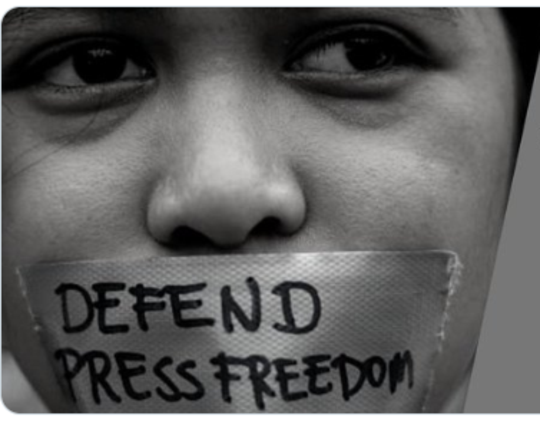Buddhipongse Punnakanta, Thailand’s digital economy and society minister who also chairs the government’s anti-fake news centre, raised the proposal in a Senate meeting while responding to questions about the media’s reporting during Thailand’s worst mass shooting in history on February 8 and 9. At least 29 people killed and dozens more wounded in a mass shooting in the north-eastern Thai city of Nakhon Ratchasima when Jakraphanth Thomma, a soldier from a nearby army base, entered Terminal 1 shopping mall and held siege for 15 hours. In all 29 people, were killed before Thailand’s police were able to apprehend him.
The Thailand government blames what it describes as intrusive reporting during the Nakhon Ratchasima mass shooting which is alleges compromised security operations and the safety of people trapped inside the shopping mall during the siege.
Thailand’s media faced intense criticism on social media for its coverage of the siege. E Jan, an online new agency, closed its website for five days as a public apology after it identified hiding spots of people trapped inside the mall while the gunman was still in the area. The National Broadcasting and Telecommunication Commission (NBTC) also threatened cable television news channels which it alleged ignored official orders to halt live broadcasts until after 9.30pm, saying that such coverage put security officers involved in the operation at risk and that the channels would face consequences.
The government’s proposal suggests a “selected” state news agency have sole responsibility for all news reporting during times it deems as a national crisis. The government said its proposal would make it easier to tackle ‘inappropriate contents”, including photos of deceased victims and sharing of information on police movements. The plan drew harsh criticism from media activists and journalists with Thailand’s media community suggesting that, instead of supressing media freedom, the government could learn from previous emergencies to better work with media to ensure the appropriate flow of information to the public, such as was the case in setting up a news centre during the Luang Cave rescue in 2018.
Press freedom in Thailand remains under attack and the country was ranked 136 out of 180 countries in the RSF 2019 World Press Freedom Index. The creation of an anti-fake news centre in Bangkok on November 1, 2019, was largely seen as an attempt to expand Thailand government’s controls online.
The IFJ said: “The suggestion of a state-run news agency monopolising coverage of Thailand’s news in times of crisis is a frightening proposition that should be strongly condemned. Citizens must have access to a diversity of coverage to gather and hear all the necessary facts, not just those deemed ‘appropriate’ by government-sanctioned censors. The Thailand government would do better to work with media companies, journalist unions and journalists to tackle the challenges of crisis coverage and journalist ethics, by supporting stronger professional journalism – not by eliminating media’s vital role in democracy as an independent watchdog.”


